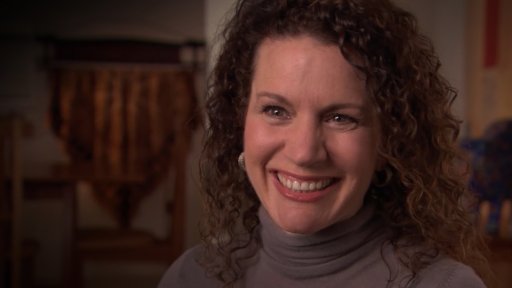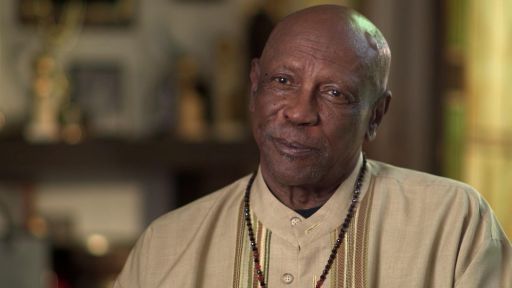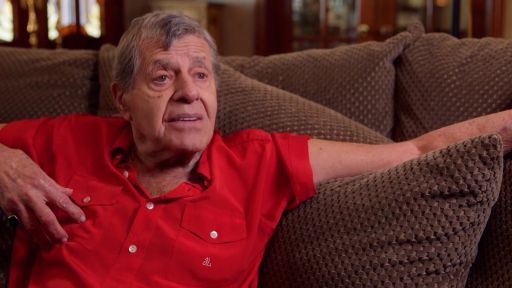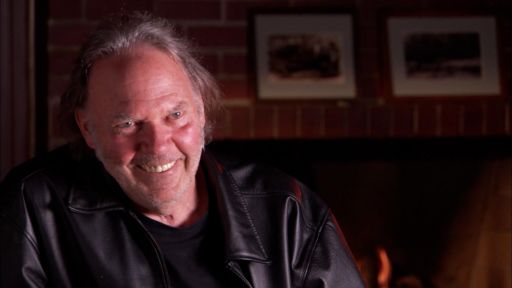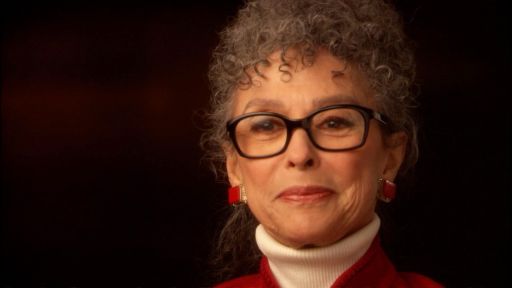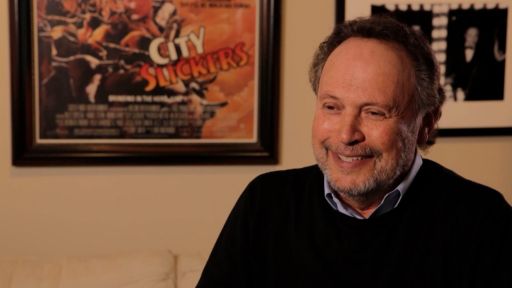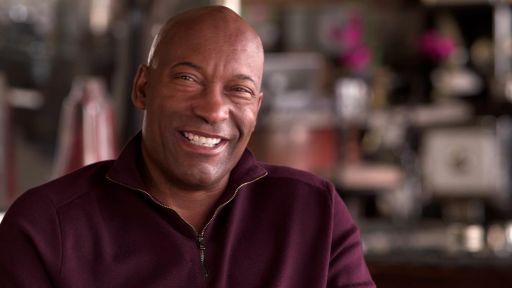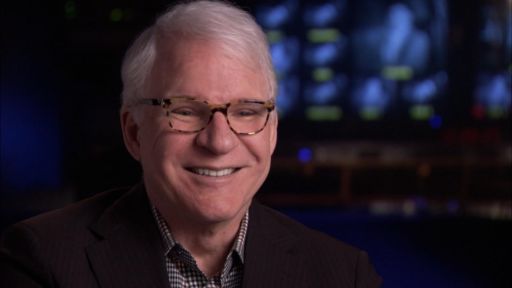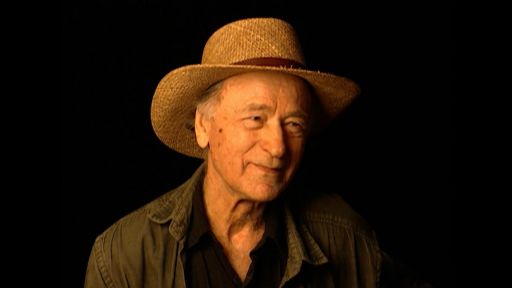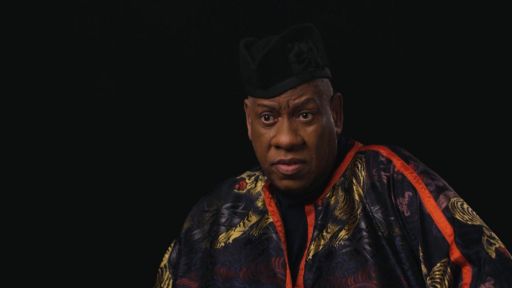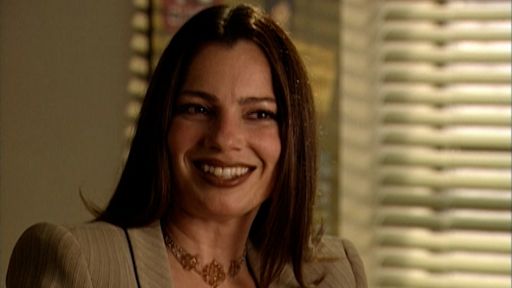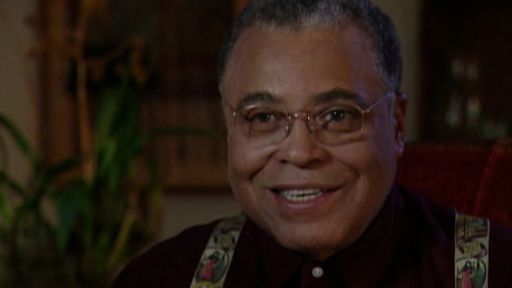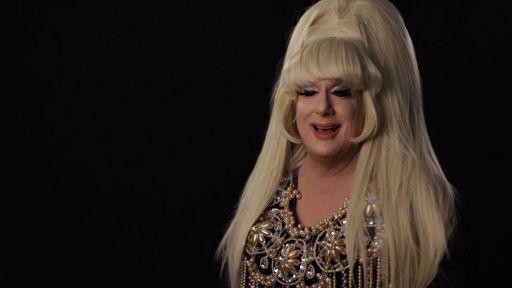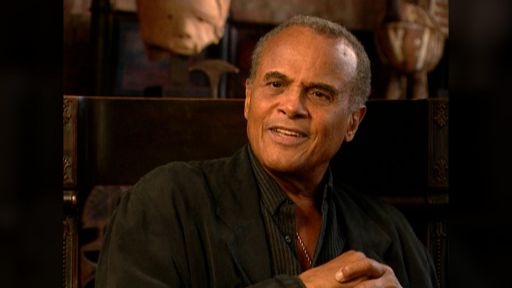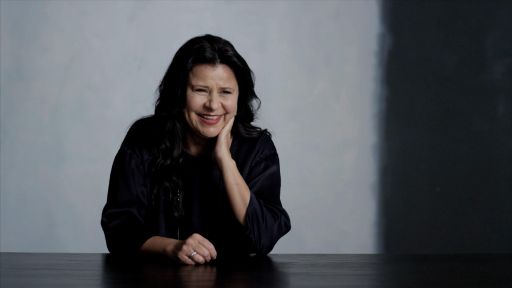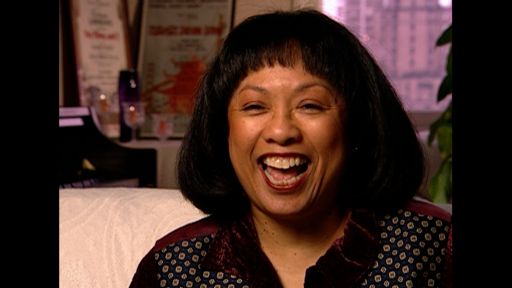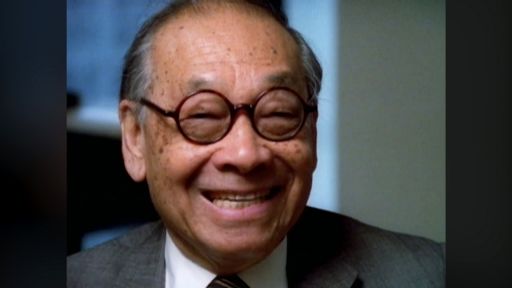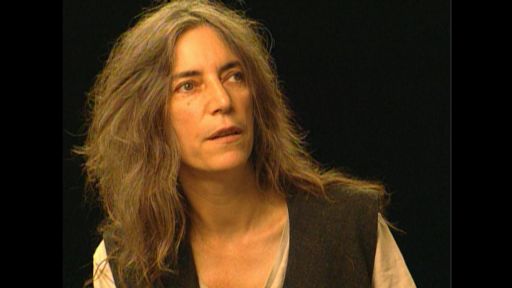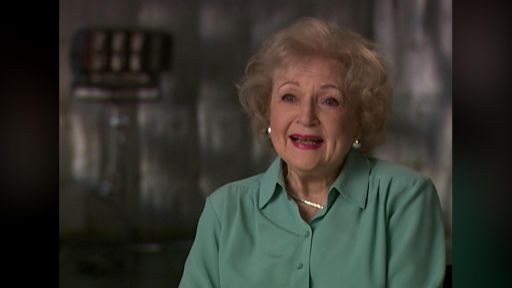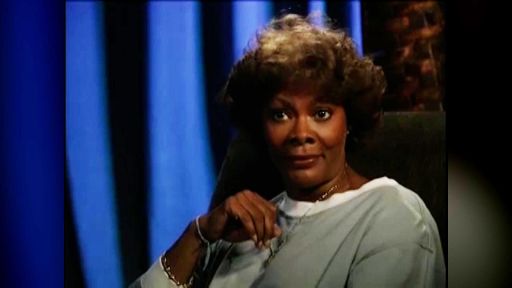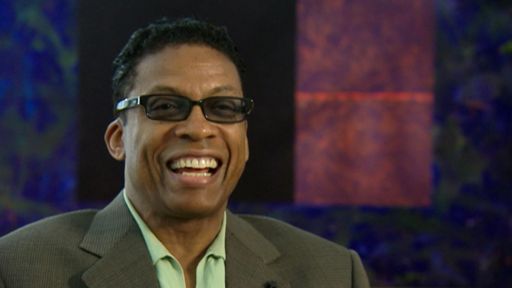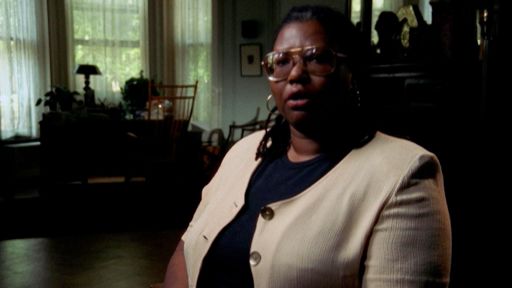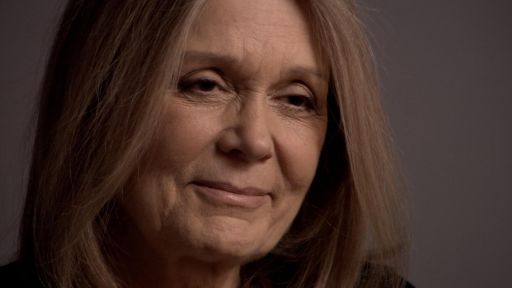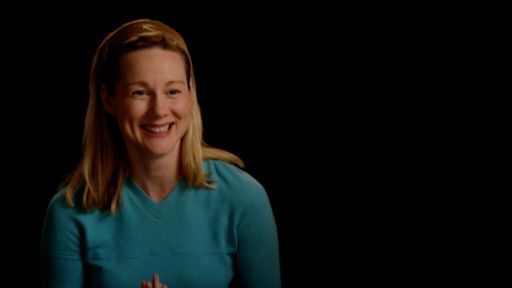TRANSCRIPT
- The first John Ford/Wayne film that I can remember seeing on a big screen, and this was after seeing maybe a few bits and pieces on television.
Maybe 'Fort Apache,' a little bit of 'Stagecoach' maybe.
I remember dying to see 'Stagecoach.'
I was five years old and it was on a re-release, and I only saw the trailer, but my parents wouldn't take me.
It was one of those things, and to this day, in my mind, I've never really seen the film, you know, because if I'd seen it then, it would have been something just embedded in my brains in a way.
But the very first one that I saw was 'The Quiet Man.'
And it was 1952, I was 10 years old, it was on a Saturday afternoon.
Loews Theatre, Sixth Street, Second Avenue.
And the place was in an uproar.
A warm, wild film. Very funny.
And I must say, visually one of the most beautiful things ever put on film.
And along with that and 'The Red Shoes' and 'The River,' Renoir's 'The River,' it's an extraordinarily beautifully made, beautifully shot film.
I understand it was misty and rainy all the time, but boy, did that help that technicolor.
And a sense of authenticity of the people, of the place.
And also, a film that's in very, very strong need of restoration right now.
Hopefully, we can pull that off one of these days.
But in any event, it was a very moving experience, but it was a wonderful experience for young people too.
It was full of life.
And a great deal of humor.
And characters that even though we came from an Italian American background, we were beginning to feel an affinity with the nature of the Irish and the Irish American, in the films, the way John Ford portrayed them.
And I mean this also my parents watching Ford films on TV.
Watching 'How Green Was My Valley,' for example, was something that was universal, in terms of all families, working class families.
This is something that sustained Ford all the way through for me, and was a major influence on me because of that.
But 'The Quiet Man' is decidedly Irish, there's no doubt about that.
But you know, 'The Quiet Man' is a picture that there are issues with, and you need a whole other show just on that one film.
- [Interviewer] What's an issue?
What do you mean, issues?
- The way the people behave and the nature of the taking of the wife.
The nature of the battling, the physical, the physical conflict between Wayne and O'Hara, you know.
But it all seems to me, which is certainly politically incorrect today, but it all seems to me, dealing with Victor McLaglen, the brother, the sense of honor, the sense of dignity, a sense of ritual.
A sense of ritual from a time and a place that ultimately, she takes that bat.
There's a shillelagh or whatever it is, that an old woman gives Wayne to beat her up with, the wife, you know.
And at the end, she takes it, after all the battling is over, she takes it and throws it away.
He's not gonna touch her. (Martin laughs) She wins, you know.
The beauty about Ford is the dignity of pride, but also the downfall of pride.
And you see this, the downfall.
The good and the bad side of being proud.
And you see this beautifully in 'The Quiet Man.'
You see it on every character, particularly Victor McLaglen.
This whole business of the dowry.
This whole business of the donnybrook that they start and people can come and watch some ancient ritual, in a way, that smashes right up against today's concept, especially in America, of how people should behave.
And rightly so, rightly so.
The picture has more to do with ritual, has more to do with pride, has more to do with establishing who they are, Wayne and O'Hara, as people in that marriage, in that relationship.
And of course, there's much more to it.
He comes to Ireland, back to the homeland, after this tragedy in the rain, which was one of the key reasons why I shot 'Raging Bull' in black and white, because there's that wonderful flashback in color, and his trunks are emerald green, you know.
And I said 'I can't shoot this thing in color,' you know.
'I just keep thinking of the Ford scene.'
But that's the first one.
And in a funny way, when I think of Wayne, I think more of course of, as I say, 'The Searchers' and 'Red River.'
But really, the modern Wayne I think of with that cap and wonderful tie and the tweeds, and that beautiful scene where he pulls, where she pulls him, he pulls her back somehow.
And there's that wonderful kiss, you know.
That wonderful kiss in the wind, yeah, and you know.
There's something very remarkable about it.
And there are issues, other issues too, of course, of the caricatures of the Irish and that sort of thing, that I'm not qualified to speak about, I don't think.
- [Interviewer] Well what's interesting about that film also too, I think you already touched on it, was that, you know, Ford was also bringing to his films this sense of that immigrant experience in the first generation of Irish Americans.
- Now, imagine an Italian, a Sicilian, going back to a small Sicilian village.
As a Sicilian American, I've done it.
I lasted two days.
(Martin laughs) Granted, it was a different time, it was 1991.
There were some wonderful family members still alive.
My parents were with me.
My parents stayed six weeks, I stayed two days.
(Martin laughed) I mean, I felt I belonged, but I really feel, I'm talking all around the issue now, but I really felt that I was the outsider, but the roots were there.
There's no doubt about it. The roots were there.
The paranoia.
The extraordinary, the paranoia going along.
I always mention the negative first, and I don't mean that in a bad, I should say the positive thing was the family.
The family, the sense of the connection with the earth, and that life revolved around, you know, one thinks idyllically of Arcadia in a way.
Arcadia, you know, with the land.
You know.
The land giving back life.
I saw it there, I saw it there.
But I also saw the nature of a small town in Sicily and the dangerous elements that go along with that too.
The paranoias, as I was saying, that sort of thing.
But I felt that, I felt that with the men outside the coffee shop on a Sunday morning, all dressed in black, drinking coffee.
No women there.
The women were in a different part of the town at that point.
I watched my father walk up to three or four older men, maybe in their 60s, to ask them in Sicilian, Sicilian of 1910, because that's where it stopped in New York.
You follow?
It's advanced since then in Sicily.
But he went up to them and asked them if they knew the house his mother was born in, et cetera.
He gave the name and he looked like he belonged with them, and nothing had ever changed.
Nothing changed.
I was different. I was the outsider.
But I felt the roots there.
And I think to a certain extent, you feel that with Wayne.
He's looking for that in 'Quiet Man.'
He needs those roots, but he's gotta prove himself there as being one of them.
I can't construct or deconstruct, what's that word they use today?
A deconstruction word.
I can't analyze what it really means in terms of Irish culture, or what Victor McLaglen's character means.
I just know that the sense of pride is something that is deflated in the picture, and ultimately, they retain their dignity, O'Hara particularly with Wayne.
And I felt pretty good about the picture.
- [Interviewer] What is it about 'The Searchers' that has always had you talk about it so eloquently?
- Well, I hope I can talk about it eloquently.
What happened was that three years later, the day we had graduated from Saint Patrick's Elementary School, myself and two friends of mine, went out on a treat and we were allowed to go out that night alone up town to a movie theater and see a movie.
And we went out, had a little dinner in a restaurant, a famous restaurant at the time.
And so we walked in and normally, I think in those days, we just walked into the middle of films.
Like I walked into the middle of 'Vertigo.'
You know, you just walk in the middle, and then you stay again if you wanna see the whole thing, whatever.
And so there it is, the Criterion theater, and there's 'The Searchers,' and it's a John Wayne western.
And we heard that it's pretty good.
I don't know if we read reviews at the time, but it was the latest John- and the papers had it, had their... And it had a sense, a feeling of a vastness to it, we felt, from the ads, you know.
A sense of something special.
And so we walked in and there it was.
I believe it was only projected in VistaVision in two theaters in America, and this was one of them.
And I gotta tell you, you've never seen anything quite like it.
The VistaVision image on this picture, particularly the wide shots of Monument Valley, and particularly when he shoots the wide shots and riders enter frame either slightly below the camera, low angle, on the bottom right or the bottom left, is phenomenal.
Is just phenomenal.
You felt you were there.
But Monument Valley itself is fascinating, because somehow, the landscape is like the crooks and the kind of jagged edges of the psyche in a way, your brain.
It just, it's like the film ultimately became like this wild, vast, psychological epic, that the landscape really reflected.
And we didn't think of that at the time, we just felt it, particularly if you saw it in VistaVision, 'cause you were placed within there.
Those tiny figures in Monument Valley weren't that tiny in VistaVision, but the rocks, the rock formations were big.
But there was a sense of space and a sense of universality of it, a kind of, a kind of a landscape where ultimately, Chuck Jones would do the Road Runner.
It's the only place to do it.
You know, it just goes on and on, life goes on.
The Coyote keeps trying. He keeps trying.
The interesting thing about 'The Searchers' is that when we saw Wayne's character in 'The Searchers,' for us, in 1956, coming out of the Cold War, we're still in the Cold War, coming from a fairly conservative working class family, though my father had been a Democrat and Al Smith and Adlai Stevenson, but then in 1956 voted for Eisenhower.
So things had changed.
And we were also becoming aware of a change in freedom of speech in America, in cinema.
You had Otto Preminger, particularly 'Man with the Golden Arm.'
You had so many pictures coming out.
Stanley Kramer's pictures.
Each of differing quality, you know.
But themes and ideas were being put up on the screen that weren't talked about.
And you had this whole weird thing of... Actually when you look at it, it's not weird now, but of course, because it's post War, what we call these darker movies, these gangster pictures.
They weren't really gangster films, they were noirs.
And everybody was totally fatalistic in those films.
Of course, 'Out of the Past' and I saw that when I was about four.
You know, it was just playing at the local theater, my aunt took me to see it.
There were all these films.
'The Big Heat,' Fritz Lang.
And so many films building up to 'Kiss Me Deadly.'
So that, in a way, and particularly, and I'm sorry if I'm going in a roundabout way talking about it, but in a way, the world I lived in, that's the world I knew.
I loved westerns because I lived in the city, tenements, and you know, I'd go to the theater and I'd see this big screen in color, or even in black and white was fine.
You'd see those horses running, all those horses were wonderful, you know.
And the characters, the cowboys, and I should say the characters in the film weren't always cowboys, but they were... Particularly in 'Shane,' which is one of my favorites.
Shane is a good man, but he's a gun fighter.
He's a very romantic character.
The father, played by Van Heflin, is just as strong a man, the boy learns ultimately.
And it's a beautiful film, but that was the exception.
And I mean, I was used to seeing westerns with the good guy and the bad guy, you know.
And I kind of liked that.
Which one?
- [Interviewer] Ethan Edwards in 'The Searchers.'
- Yeah, but you see, he was the difference.
So the thing was, I was used to the good, the bad guy and that sort of thing.
I was used to the show down in the street, the shootout.
And in a way, I liked it.
Where I came from, I gotta tell you, the morality was such that... Well, the word 'morality,' I can't even use the word 'morality,' it was a certain world where it was almost feudal, in a way.
And you had to be very careful.
Respect was important.
I saw people get hurt.
I saw people disappear. I don't know.
I just know that ultimately, up on the screen, it was simpler.
The landscape was vast, and when people weren't on top of each other, there was still a chance of creating something new.
They were in the process of creating a country, in a way, a whole new society.
When we saw Ethan Edwards, I felt totally at home with him.
This is the guy we know.
We know this man.
And besides which, I knew him from 'Red River.'
(Martin laughs) You know.
I hate to say this, my father and I, we got along very well over the years, and you know, we got to enjoy a lot of my work.
He was acting in my movies and stuff towards the end.
But you know, as a kid, for your father, you wanted 'Shane.'
But in a way, in my mind, in the worst parts of my mind, I sort of got like, Ethan. (Martin laughs) I mean, he would be mortified if he ever heard that now, but I don't mean that.
I mean in the darkest part of your mind when things are really difficult, as you're growing up and the struggle between fathers and sons, I saw my father up there.
Maybe he took 'The Searchers' as a way of pushing forward, pushing himself forward.
As a comeback in a way too.
But also to explore new territory.
And he's got his man there, he's got Wayne, who he started with in 'Stagecoach.'
- [Interviewer] Well there's something about that.
I mean, he worked on 14, 15 films with Wayne.
You've worked on eight films with De Niro.
What is it about that collaboration between you two?
- You know, it's a blessing, it really is.
I gotta say.
Because in the case of Bob and me, we're the same age, he was not a movie star, I was not a director of note at the time when we first worked together.
And so we made the movie together, with Harvey Keitel and everybody else.
But we made the movie together.
It was based on my life on the Lower East Side, my old friends, who by the way, one or two of which had come to see 'The Searchers' with me that night when we were 13 years old.
And we didn't have any... We were working.
It wasn't making a movie with a movie star.
And so when we came together on 'Taxi Driver,' through Paul Schrader, and Brian De Palma had put us together really, We also felt that something happened on that picture.
Going back into 'Mean Streets,' De Niro had been in the same area where I grew up.
And at the age of 15 or 16, he was sort of hanging out, quote unquote, with a different group of guys up by Hester Street or Grand Street and we were on Elizabeth and Prince, and that sort of thing.
The groups didn't mesh that well, but we would see each other in after-hour clubs and places like that.
And he was always a very sweet guy from what I remember.
And I just thought he was another neighborhood guy from further south, Hester Street.
And so he knew the people, or aspects thereof, what I was doing in 'Mean Streets.'
So it was something that we both were formative... In a funny way, we had experienced, a formative, experienced time together really.
Our characters were formed right around that time, for better or for worse.
And so we could always draw back on that.
And we knew a gesture like that wouldn't be right.
A knock on the door a certain way isn't right.
A certain word isn't right.
And also, certain feelings couldn't be discussed.
They were felt, they were understood.
If they weren't understood between the two people, no amount of talking is gonna make it work.
And that's what we discovered on 'Taxi Driver' too, although it had nothing to do with the old Italian American neighborhood downtown.
It had to do with something deeper and the outsiders, we were outsiders.
We never fit in anywhere.
I don't think he did.
I only found that out later.
I thought he was fine, I didn't know.
I was this outsider, this asthmatic kid who was always like, to survive in the street, I had to sort of be comic relief for these tougher guys.
You know.
And you had to be careful.
It was a very rough kind of thing for me.
And as I say, it's a funny thing to talk about it that way because a lot of the young men who came out of that world, and women, are lawyers and bank presidents and things.
But there were others that weren't.
I'm sorry, they just weren't.
And some are gone.
And you know, we were the outsiders.
And I think that's where suddenly, all that emotion that Schrader had put into that script of 'Taxi Driver' came together in that Travis Bickle character.
And all the negativity of the fantasy, and then crossing the line from fantasy into acting out the fantasy, the disaster, the catastrophe.
You know, the apocalypse.
The apocalypse of being a loner.
Now we're gonna get you, now we're gonna take it out on you.
Now we're gonna get back.
And I think as young men, or boys maybe, we still were, this was all churning inside of us.
And we never spoke that way about it, by the way.
We never said anything.
We understood the loneliness, we understood the rejection.
And the feelings of frustration.
But I think with Ford and Wayne, you know, it's slightly different, I think, because it was more father/son, I would think, looking back.
'Cause it's different generation.
Raoul Walsh discovered Wayne and he put him in 'The Big Trail' as Marion Morrison, I think.
And you know, I think... I don't know the story of how he finally got into 'Stagecoach,' but I know he was doing all those B-westerns during the 30s.
And as Johnny Ringo, he goes from Johnny Ringo to Ethan Edwards to Frank Weed, you know.
To, I forget the name of the character... - [Interviewer] Tom Doniphon.
- Ah yeah, in 'The Man Who Shot Liberty Valance.'
Now you have a progression.
Not only do you have father and son, but you also begin, I think, to see a relationship of these two men in which ultimately, somewhere in the middle, and I think it's around the 50's, after 'Fort Apache,' right around, I think it's 'Searchers,' where they kind of blend together to become the same person.
And I think the beauty of this whole thing with these two guys is that you have from the older way of looking back, you start, they're young men, they're full of optimism.
And you know, the creation of a world, the first half of the century, they're fighting World War II, all of that sort of thing.
And then you see them develop and grow into older men, reflective and melancholy.

